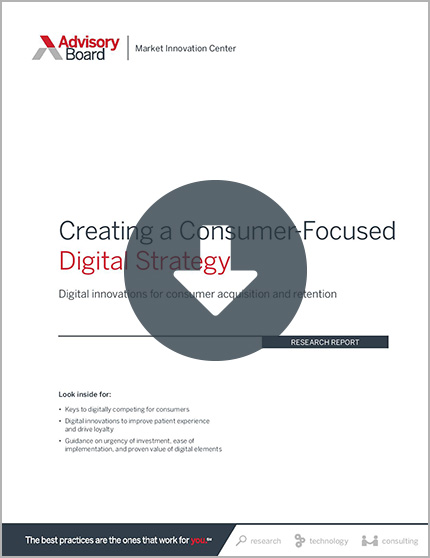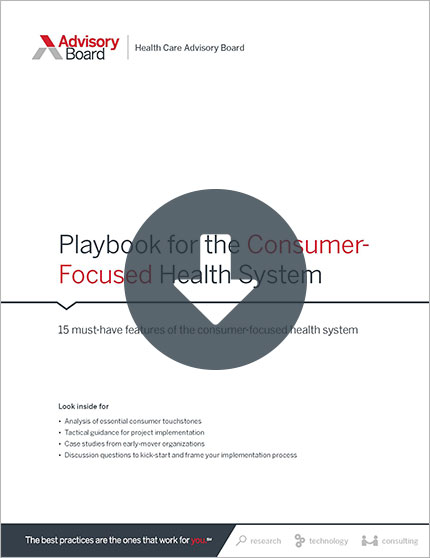Auto logout in seconds.
Continue LogoutLike it or not, patients turn to Google with all sorts of medical questions. What sorts of questions did patients turn to Dr. Google to answer last year?
Discover the playbook for the consumer-focused health system
To find out, CNN looked at search data from January to mid-December to round up the 10 most-Googled questions of 2018.
Below we share the top 10 questions—and their answers.
1. 'What is the keto diet?'
The most-Googled health question last year asked about the keto diet, which is high in fats, moderate in proteins, and very low in carbs. The diet contributes to weight loss by sending the body into "ketosis," whereby it breaks down ingested and stored body fat into ketones that it then uses as energy.
However, while the diet has become more popular, nutrition experts aren't as happy with it. The diet ranks near the bottom of U.S. News & World Report's latest Best Diets rankings. Nutritionist Lisa Drayer, a CNN contributor characterized the diet as "just not sustainable over the long term." She added, "It doesn't teach you how to acquire healthy eating habits."
2. 'What is ALS?'
ALS is short for Amyotrophic lateral sclerosis—a progressive nervous system disease that attacks nerve cells in the brain and spinal cord. Physicist Stephen Hawking, whom CNN calls "perhaps the most famous ALS patient," died from ALS last March. ALS is also known as Lou Gehrig's disease. The name comes from the Yankees player who retired from baseball due to the condition in 1939.
3. 'What is endometriosis?'
Endometriosis refers to when the tissue from inside the uterus grows outside of the uterus. CNN reports that 11% of U.S. women may experience the condition.
Endometriosis gained attention when TV star and producer Lena Dunham in February 2018 spoke out about having had a hysterectomy to treat endometriosis pain.
4. 'How long does marijuana stay in your urine?'
Healthline offers a multi-part answer to this highly Googled question. The amount of time cannabis is detectable in the body varies depending on how much and how often a person uses it. Generally, according to Healthline, marijuana is detectable in bodily fluid for one to 30 days after first use. However, it may be detected for several months after last use among daily users.
The Mayo Clinic Proceedings offered a more specific look at the different timelines here.
5. 'How long does influenza last?" And 6. "How long is it contagious?'
The fifth and sixth most-Googled questions of 2018 both related to the flu, which is no surprise as the 2017-2018 flu season was a particularly bad one.
For most people, CDC says uncomplicated flu typically resolves after three to seven days. However, cough and malaise can continue for upward of two weeks. However, CDC says some people—including children under age 5, elderly adults, pregnant women, American Indians and Alaska Natives, and individuals in long-term care facilities—are at hight risk of developing serious flu-related complications that require hospitalization.
According to the Mayo Clinic, the flu is contagious likely from roughly a day before until about five days after symptoms begin. People with weakened immune systems and children may be contagious for slightly longer periods.
7. 'When does implantation bleeding occur?'
Implantation bleeding refers to a light vaginal bleeding when a fertilized egg attaches to the lining of a woman's uterus. It happens in about one-quarter of pregnancies, according to Sherry Ross, OB/GYN at Providence Saint John's Health Center.
Implantation of a fertilized egg—and the related bleeding—occurs toward the end of a 28-day menstrual cycle, between days 24 and 26, Ross said. It happens six to 12 days after conception, according to Healthline.
Implantation bleeding usually doesn't last longer than 24 to 48 hours, according to Linda Burke-Galloway, a physician and author of "The Smart Mother's Guide to a Better Pregnancy: How to minimize risks, avoid complications and have a healthy baby.
8. 'Why am I always tired?'
Of course, there's no universal answer to this query, but WebMd offers five common explanations for tiredness, including:
1. Dietary reasons, such as caffeine and sugar crashes as well as an unbalanced diet;
2. Not drinking enough water;
3. Simply not getting the recommended seven-to-nine hours of sleep;
4. Not getting enough exercise; and
5. Poor mechanisms for copying with stress.
9. 'What does heartburn feel like?'
Mayo Clinic describes heartburn as "a burning pain in your chest, just behind your breastbone." Typically, the pain is worse following a meal, when a person is lying down, and in the evening, according to Mayo.
Mayo warns, "Seek immediate help if you experience severe chest pain or pressure, especially when combined with other signs and symptoms such as pain in the arm or jaw or difficulty breathing. Chest pain may be a symptom of a heart attack."
10. 'What causes high blood pressure?'
Mayo Clinic says there's no single identifiable cause for primary hypertensions, though some people may have hypertension due to an underlying medical condition or medication. Examples of such medical conditions include kidney problems and thyroid problems. Risk factors for high blood pressure include older age, African heritage, family history, being overweight or obese, not being physically active, tobacco use, stress, and drinking too much alcohol (Howard, CNN, 12/26, 2018; Vandergriendt, Healthline, 8/27/18; "Clinical Signs and Symptoms of Influenza," CDC website, accessed 1/7; "About Influenza," CDC website, accessed 1/8; "Influenza (flu)," Mayo Clinic, accessed 1/7; Goldman, Healthline, 11/12/18; "Heartburn," Mayo Clinic, accessed, 1/7; "High blood pressure (hypertension)," Mayo Clinic, accessed 1/7).
15 core components of the consumer-focused health system
As health care becomes an increasingly consumer-driven market, health systems are at a critical fork in the road.
To shape their marketplaces, health systems must understand how consumer preference can translate to market share gains. This publication highlights 15 core features of a truly consumer-focused health system and leading examples of each feature.
Don't miss out on the latest Advisory Board insights
Create your free account to access 1 resource, including the latest research and webinars.
Want access without creating an account?
You have 1 free members-only resource remaining this month.
1 free members-only resources remaining
1 free members-only resources remaining
You've reached your limit of free insights
Become a member to access all of Advisory Board's resources, events, and experts
Never miss out on the latest innovative health care content tailored to you.
Benefits include:
You've reached your limit of free insights
Become a member to access all of Advisory Board's resources, events, and experts
Never miss out on the latest innovative health care content tailored to you.
Benefits include:
This content is available through your Curated Research partnership with Advisory Board. Click on ‘view this resource’ to read the full piece
Email ask@advisory.com to learn more
Click on ‘Become a Member’ to learn about the benefits of a Full-Access partnership with Advisory Board
Never miss out on the latest innovative health care content tailored to you.
Benefits Include:
This is for members only. Learn more.
Click on ‘Become a Member’ to learn about the benefits of a Full-Access partnership with Advisory Board
Never miss out on the latest innovative health care content tailored to you.


